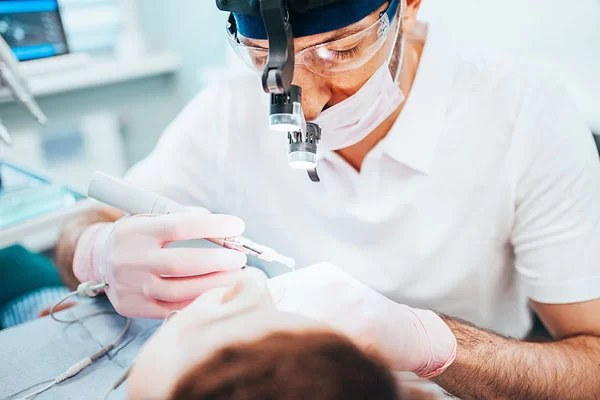Understanding Dental Implant Success and Challenges
Dental implants have transformed modern dentistry, providing a durable solution for replacing missing teeth. However, like any procedure, dental implants can experience complications. At Eastside Dental Implant Center, Issaquah, WA, implant dentist Dr. Sidhu explores the critical topic of dental implant failure, including how to identify the signs and what to do if your implant doesn’t function as expected.
If you’re concerned about your dental implants, contact our Issaquah, WA, office at (425) 526-5424 to schedule a consultation or learn more about dental implants.
Types of Dental Implants
Dental implants come in several types, each designed to cater to specific patient needs and anatomical conditions.
- Endosteal Implants: The most common implant type, featuring screws or cylinders inserted into the jawbone. They offer a strong foundation for prosthetic teeth and are suitable for patients with sufficient bone density. The long-term success of endosteal implants is closely linked to the osseointegration process, where the implant bonds with the bone.
- Subperiosteal Implants: These implants are placed on or above the jawbone but beneath the gum tissue. They’re recommended for patients who lack adequate bone height, avoiding the need for bone grafts. Subperiosteal implants can be an option for those not suitable for endosteal implants.
- Zygomatic Implants: Zygomatic implants are longer and anchored in the cheekbone (zygoma) instead of the jawbone. These implants are often used when a patient has insufficient bone in the upper jaw and offer an alternative to sinus lifts or bone grafts.
Common Causes of Dental Implant Failure
Although dental implants boast a high success rate, certain factors can lead to implant failure. These causes are typically grouped into biological, mechanical, and patient-related categories.
Biological Factors
Biological factors involve conditions that affect the natural integration and health of the implant within the oral environment. These factors include:
- Peri-implantitis: A common cause of late-stage implant failure, peri-implantitis involves inflammation around the implant site, leading to bone loss. Maintaining good oral hygiene and scheduling regular checkups are critical for preventing this condition.
- Osseointegration Failure: Sometimes, implants fail to integrate with the jawbone due to poor bone quality, systemic diseases, or smoking. In such cases, osseointegration might not occur, jeopardizing the implant’s stability.
- Infection: Post-surgical infections can compromise the implant site. Maintaining strict oral hygiene and following post-op care instructions are key to avoiding infections.
Mechanical Factors:
Mechanical factors encompass issues related to the physical stability and function of the dental implant. These factors include:
- Implant Fracture: Overloading or surgical complications can result in fractures. Proper placement and load management are essential.
- Prosthetic Complications: Failure of crowns or bridges due to poor design or material defects can cause the implant to fail. Routine examinations and addressing wear and tear promptly can prevent such issues.
Patient-Related Factors:
Patient-related factors involve individual behaviors and health conditions that can impact the success of dental implants. These factors include:
- Poor Oral Hygiene: Inadequate oral care can lead to inflammation around the implant and eventual failure. Daily brushing, flossing, and regular dental visits are essential for long-term implant success.
- Smoking: Smoking significantly increases the risk of implant failure by impairing healing and bone integration.
- Systemic Conditions: Chronic conditions like uncontrolled diabetes or autoimmune disorders can affect healing and osseointegration.
Signs and Symptoms of Dental Implant Failure
Recognizing early warning signs of implant failure can help patients and providers address issues before they worsen. Common signs include:
- Persistent Pain: While some discomfort is normal after the procedure, prolonged or increasing pain may indicate a problem.
- Swelling or Inflammation: Redness, swelling, or bleeding around the implant site may signal infection or peri-implantitis.
- Loosening Implants: If the implant feels loose or shifts, it’s critical to seek immediate dental care.
- Bone Loss: Changes in CBCT scans or X-rays showing bone loss around the implant are a sign that the implant may be compromised.
Preventing Dental Implant Failure
Preoperative Planning and Risk Assessment
At Eastside Dental Implant Center, we emphasize careful planning to minimize the risk of implant failure. Before your procedure, Dr. Sidhu will assess your oral health, bone density, and any underlying medical conditions. 3D imaging technologies like CBCT scans are used to create a personalized treatment plan.
Patient Education on Implant Care
Understanding proper dental implant care is essential for longevity. Our team will guide you on how to care for your implants at home, including recommendations for soft-bristle toothbrushes, interproximal brushes, and non-abrasive toothpaste.
Regular Follow-ups and Monitoring
Routine check-ups help monitor your implant’s health and address any potential issues early. Professional cleanings every six months and open communication with your dentist ensure the long-term success of your dental implants.
Treatment Options for Dental Implant Failure
If your implant is failing, there are several non-surgical and surgical treatment options available:
- Antibiotics: Antibiotics may help control infection-related failures and preserve the implant.
- Implant Removal and Replacement: In more severe cases, removing the failed implant and replacing it with a new one, potentially alongside bone grafting, may be necessary.
- Bone Grafting: Bone loss can often be addressed with bone grafting procedures, allowing for improved implant stability and success in the future.
Frequently Asked Questions
Yes, dental implant failure can occur years after the initial procedure. Regular follow-up appointments and vigilant oral care are essential for long-term success.
Follow-up appointment frequency can vary but is typically scheduled every three to six months. Your dentist will determine the appropriate schedule based on your individual needs.
Yes. Certain medical conditions, such as uncontrolled diabetes and autoimmune disorders, can impact the body’s ability to heal and integrate implants. It’s important to discuss your medical history with your dental professional.
Dental implants are made from materials like titanium, which is biocompatible and generally well-tolerated by the body. Implant rejection is rare, and failure is often due to other factors such as infection or inadequate osseointegration. That said, implant rejection can happen, and you should inform your implant dentist as soon as possible if you notice any symptoms.


